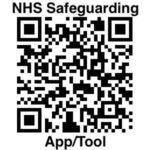Safeguarding Training
 In this area, you can find all of the up to date information on Safeguarding.
In this area, you can find all of the up to date information on Safeguarding.
The January 2019 Intercollegiate Document makes a distinction between professional groups who require Level 3 ‘Core’ child safeguarding training and those primary care clinicians (e.g. GPs, Practice Nurses, Advanced Nurse Practitioners, Paramedics) who require Level 3 ‘additional knowledge, skills and competencies’ child safeguarding training.
According to RCGP guidance, training should be 50% participatory and 50% non-participatory.
Inter-professional and inter-organisational training is encouraged in order to share best practice, learn from serious incidents and to develop professional networks.
Several aspects of safeguarding training and education can apply equally to child and adult safeguarding and share the same principles. Examples of this may include, but are not limited to: safeguarding ethos, confidentiality, information sharing, documentation and domestic abuse. For example, if a clinician attended a one-hour Level 3 training session on domestic abuse that covered adult and child safeguarding issues equally, the RCGP supplementary guidance suggests this would count towards one hour of adult safeguarding Level 3 training and one hour of child safeguarding Level 3 training.
NHS Safeguarding App

Use your phone to scan the QR code for the National NHS Safeguarding App or search for ‘NHS Safeguarding’ in your phone’s app store. This can be used as a training refresher and signposting for cases, as well as holding resources for information on safeguarding.
What are the requirements for training?
Adults level 3
Each year, professionals should be able to demonstrate a total of 8 hrs training and development completed over the previous three years. This should come from attending a Level 3 Session, completing E-learning (via SfH) and completing frequent refresher development/training from other sources. This requirement should be evidenced via relevant certificates and a log outlining how you have met the 8 hr requirement
Children level 3
Each year, professionals should be able to demonstrate a total of 12 hrs training and development completed over the previous three years. This should come from attending a Level 3 Session, completing E-learning (via SfH) and completing frequent refresher development/training from other sources. This requirement should be evidenced via relevant certificates and a log outlining how you have met the 12 hr requirement.
Participatory
- Attending face to face training
- Group case discussion
- Reflection on the learning from a case the professional has been involved in and how this applied to their practice
- Webinars
- Attendance at safeguarding practice meetings
- Demonstrating how learning gained from reading Child Safeguarding and Adult Safeguarding resources such as articles has been applied to clinical practice
Non-participatory
- E-Learning
- Reading the RCGP Child Safeguarding and Adult Safeguarding toolkits
- Relevant safeguarding guidelines of journal articles
How can I access safeguarding training?
You can find out which training is mandatory for you, by looking at the relevant Training Matrix.
Below are a list of safeguarding trainings that you can access:
- ‘Prevent’ is safeguarding training surrounding radicalisation, accessible through Skills for Health.
- FGM safeguarding training can be accessed through The Development Hub
- You can access safeguarding modules including levels 1-4 adults, here.
- At present you can access level 3 safeguarding training, for free, at future learn. Please go to https://www.futurelearn.com/register complete the registration process and then search for Safeguarding Adults: Level 3 Training.
- Awareness of Mental Capacity Act is included in the safeguarding level 3 sessions OR The Development Hub – of which you only need to complete the module ‘Mental Capacity Act and Adult Safeguarding’.
BNSSG
General Practice staff can access Safeguarding Training from BNSSG local authorities free of charge using a nhs.net email address. See below for links to websites. For level 3 safeguarding, individuals should choose interagency / advanced options.
Some further training materials are below:
- Intercollegiate Document Safeguarding Children and Young People: Roles and Responsibilities for health care staff
- RCGP Supplementary guide to training requirements can be found, here – Safeguarding-training-requirements-for-Primary-Care-FINAL
- Keeping Bristol Safe Partnership training pages and webinars
- Effective Support for Children and Families in Bristol – Indicators of Need
- Make a child safeguarding referral
- Prevent duty: guidance for healthcare professionals page on GOV.UK.
- Safeguarding in Virtual Consultations
- Level 3 training available through the CCG
- Level 3 training package written by Named GPs for Safeguarding in Bristol
Recording your learning
You should record your safeguarding training in a safeguarding training log – you can find the template here – NEW SAFEGUARDING LOG 2023 onwards
Below is an example of a completed safeguarding training log.
Here is a really helpful guide on how to record your safeguarding learning.
